Against the rise in the price of the dollar.. "angry" demonstrations in front of the Central Bank of Iraq building in Baghdad (photos + video
The Iraqi Central Bank talks about an upcoming developmental shift
The Central Bank of Iraq confirmed, on Tuesday, the launch of several development initiatives that supported the state at the time of the financial crisis, and helped support residential, industrial and real estate projects, as well as the construction and rehabilitation of hospitals and schools, while indicating that Iraq is on the cusp of a developmental era that will include several sectors.
"After 2014, the functions of the Central Bank were transformed into developmental roles due to the complex problems the country went through, including the emergence of the terrorist ISIS gangs and the devastation they caused," Central Bank advisor Ihsan Shamran al-Yasiri told the official agency.
He added, "Financial problems also occurred due to the drop in oil prices in 2014, and the bank entrusted the state's public finances to pay salaries using monetary policy tools, and lending to the government through the secondary market by discounting bonds it bought from banks."
He pointed out that "the Central Bank also launched a development initiative in 2015, and its total funds so far amounted to 18 trillion dinars to support the banks of the agricultural, industrial and real estate sectors and the housing fund."
And he continued, "The bank also launched an initiative (Tamkeen) with the funds of banks and non-bank financial institutions, which enabled the state to rebuild Al-Mutanabbi Street, and rehabilitate orphanages, the elderly, hospitals and schools that were damaged by terrorism, and these are recorded as achievements of the monetary institution, and now we are on the cusp of a new development era that will include several sectors.
But who will protect Iraq from Iran?
The Iraqi leadership is fully aware of the reality of what Iran is doing to their country, but can do nothing about it.
Iranian Supreme Leader Ali Khamenei reportedly said in a meeting in Tehran with Iraqi Prime Minister Mohammad Shia Al Sudani that Iran is “ready to protect Iraq from those who want to destabilize its security and stability.” Iraq is “the best Arab country in the region in terms of its natural and human resources as well as its cultural, historical and civilizational heritage,” he said.
This statement is in itself striking. Iraq does not need Khamenei to promise protection from those who want to destabilize its security and stability. Instead, it wants the Iranian leader to pledge to prevent his country’s hand from harming Iraq and violating its national sovereignty.
Iraq certainly does not want its neighbors to protect it. It just wants them to keep their hands off it; they must adhere to the principle of good neighborliness. These facts are not unfamiliar to the Supreme Leader and his fellow mullahs.
But the Iranian regime is addicted to mendacity and deception until it believes itself. It believes that its lies can be bought by others. Everyone knows who is tampering with Iraq’s security and undermining its security and stability.
Who has an interest in keeping this great Arab country intact without the possibility of regaining its economic strength and its ability to develop? Its strategic influence is also at stake. Indeed, Iraq, along with Yemen, is the regional actor most affected by Iran’s expansionist hegemonic policy.
This former Arab country is paying a high price for Iranian sectarian expansion in the Iraqi body, and the signs and indicators of this expansion are not a secret to anyone, be it in the sectarian political conflict, be it between Shiites and Sunnis, or between the main Shiite parties in the country.
The Iranian position, which seeks to suggest support for Iraqi stability, comes in the context of an invitation from Amir Saeed Irvani, Iran’s representative to the UN. In it, he calls on the UN Security Council to condemn Israel’s attacks on Syria as a violation of international law, humanitarian law and the UN Charter.
It is as if he thinkgs Israeli attacks in Syria are subject to a different international law than Iranian attacks and violations in Iraq. The principled lesson given by the Iranian envoy to the UN in defense of Syria is the same lesson that should be given to those in charge in Tehran.
Syria, which has been granted the right to defend itself in accordance with international conventions, is in a similar position to Iraq, whose sovereignty Iran has repeatedly violated.
Both major Arab countries suffer from the same problems and violations, but a very important point is that Israeli attacks in Syria target Iranian or pro-Iranian entities that Israel considers a threat. In other words, it is Iran that issues the threat and tries to deflect it by claiming to defend others.
Syria cannot by itself effectively keep the pro-Iranian militias out of its territory for very complex reasons, at least at the moment and under the current circumstances, while Iraq is committed to protecting its border with Iran and preventing any threat to Iran from Iraqi territory.
Security and stability in northern Syria can only be achieved by preserving its sovereignty, territorial integrity and respect for its statehood. Israel, while protecting itself, is in effect helping to preserve Syrian sovereignty from Iran. The right to the above also applies to Iraq and all other countries. Why doesn’t Iran itself begin to abide by these principles, take its hands out of Iraq and comply with what others are demanding?
This debate is a reminder that principles are indivisible; credibility is achieved by understanding, applying, and fully following them without violating them on one side and demanding them on the other.
But it is ironic when a regional party practices all kinds and practices of violating the sovereignty of others while granting itself the right of trusteeship, dressing itself in the garb of innocence and demanding the condemnation of practices that it itself practices in other countries. The Iraqi leadership is fully aware of the reality of what Iran is doing to their country.
But it is inevitable for them to continue to cooperate with the regime of the mullahs. It is the evil neighbor they need. The lesser evil for Iraq is to try to contain or at least limit and mitigate Iranian interference in its internal affairs.
The scenario appears very difficult and ultimately depends on the extent to which it is consistent with Iranian interests, goals, and plans. But Iraq’s interests require further attempts and efforts in this direction.
Sudanese advisor: The coming days will witness stronger indicators of the stability of the value of the dinar
The economic advisor to the Prime Minister, Mazhar Muhammad Salih, confirmed today, Tuesday, that the coming days will witness stronger indications of the stability of the value of the dinar.
In an interview with Earth News, Salih said, "Iraq currently enjoys superior reserves of foreign exchange, and these large reserves meet the standards of efficiency of all international reserves comfortably, as foreign reserves touched the range of $100 billion, which is the highest in Iraq's modern financial history."
He added that "the capabilities of the monetary authority in meeting the demand for foreign currency for the purposes of financing foreign trade for the private sector (i.e. financing imports in foreign exchange) are also very high and exceed the international standard in covering imports by almost six times."
And he indicated that "what happened in terms of fluctuation in the exchange rate recently came due to regulatory matters and global controls adopted by the compliance departments for the dollar currency markets within the dollar zone."
He pointed out that “the regularity of merchants’ requests in executing foreign transfers to cover import costs, which constitute 90% of the total demand from the foreign currency window in the Central Bank, today began to take a better position than before in the regularity of requirements and their fulfillment, which is characterized by the availability of transparency and disclosure of information and following the rules international governance”.
He explained that “with the passage of days, the gap in demand for currency and foreign exchange began to shrink and decline in the interest of the stability of the exchange rate and exchange markets together, which made the Iraqi dinar accelerate more towards stability rates, and the coming days will witness stronger indicators in the stability of the value of the dinar, which is reflected in the strength of the external value of the Iraqi dinar itself or the exchange rate.
Expectations for when the 2023 budget will be passed
Today, Tuesday, the Parliamentary Finance Committee expected two possible dates for the 2023 budget to reach Parliament and vote on it.
A member of the Parliamentary Finance Committee, Mueen Al-Kazemi, told Al-Iraqiya News and followed it (Baghdad Today) that, “According to our information, the Ministry of Finance delivered the draft budget to the Council of Ministers and the Economic Council met and discussed the draft and made some amendments.”
He added, "The budget is supposed to be approved by the Council of Ministers at a later date and delivered to the House of Representatives after the end of the legislative recess on January 8."
And he continued, "The consensus between the political blocs and the meeting of the Kurdish forces in Baghdad with Prime Minister Muhammad Shia' al-Sudani resolved many points, and the blocs have a desire to approve the budget to start work and complete the expected service projects."
He pointed out that "achieving this will allow the budget to reach the stage of voting on it in the House of Representatives in the middle of next February, provided that the government begins to initiate projects that await the budget at the beginning of March and implement what is included in the government program."
Prime Minister Muhammad Shia al-Sudani confirmed during a press conference held today that the government did not rush to send the 2023 budget to the House of Representatives because the issue requires further scrutiny of the status of financial obligations, pointing out that the budget will include for the first time the government's vision and the ministerial platform.
Do you own a business that remained open during Covid19?
You may qualify to receive a government grant.
Click below or just go to YourERCHere.com Get money for your business
Determining the date of the Sudanese visit to the White House.. The airport crime is at the top of the files
oday, Wednesday, the State of Law Coalition set the date for the visit of the Prime Minister, Mohamed Shia Al-Sudani, to Washington, while stressing that the US government will hold former President Donald Trump responsible for the airport crime.
The leader of the coalition, Jassem Muhammad Jaafar, said in an interview with Al-Maalouma agency, that "the visit of the Prime Minister, Muhammad al-Sudani, to America, and his arrival to the White House, will take place within a period of less than 45 days," stressing that "the Sudanese will travel to America." To discuss a number of files, including the airport crime.
He added, "The prime minister will demand the US government to clarify the condemned crime carried out by former President Donald Trump at Baghdad Airport, which led to the martyrdom of the leaders of victory (Abu Mahdi Al-Muhandis and Qassem Soleimani)."
The leader in Maliki's coalition said, "The current US government, since it is against the directions of the former president, will hold Trump fully responsible for carrying out the heinous operation."
And the representative of the Al-Fateh Alliance, Muhammad Al-Baldawi, had said in a statement to Al-Maalouma, that "Prime Minister Muhammad Shia'a Al-Sudani's visit to Washington will discuss several important files, foremost of which is lifting restrictions on Iraq's commercial dealings, arranging political relations with Washington, and the American military presence to implement previous parliament decision.
It is scheduled that Prime Minister Mohammed Shia Al-Sudani will visit the United States of America during the next few days, in the first official visit to Washington after assuming office.
Against the rise in the price of the dollar.. "angry" demonstrations in front of the Central Bank building in Baghdad (photos + video)
Yes to the dinar'

On Wednesday, a number of citizens organized angry demonstrations in front of the Central Bank building in the capital, Baghdad.
Our correspondent reported (January 4, 2023), that "a number of citizens organized demonstrations in front of the Central Bank building on Al-Rashid Street in Baghdad, through which they raised banners calling for a reduction in the exchange rate of the dollar."
Pictures monitored by "NAS" showed a side of the demonstrations that coincided with continuous showers of rain, amid an intense security deployment.
Today, Wednesday, the exchange rates of the dollar continued to rise against the dinar in the local markets in the capital, Baghdad.
The selling price of the dollar in exchange shops was 157,750 dinars for every 100 dollars, while the purchase price was 156,750 dinars for every 100 dollars.
This morning, the (Baghdad Today) correspondent said, "The central Al-Kifah and Al-Harithiya stock exchanges in Baghdad recorded an exchange rate of 155,600 dinars against 100 dollars."
He added, "The buying and selling prices in exchange shops in the local markets in Baghdad recorded an increase, as the selling price reached 156,500 dinars, while the purchase price reached 155,500 dinars per 100 dollars."
On December 27, 2022, the Central Bank of Iraq issued a statement regarding the rise in the exchange rate of the dollar against the Iraqi dinar, calling on banks to assume their responsibilities in facilitating and accelerating procedures for their customers to ensure their access to financing with the best banking practices.
And the Central Bank stated in its statement, which was received by (Baghdad Today), that “the Board of Directors of the Central Bank of Iraq met on December 27, 2022 and discussed the repercussions and indicators of the rise in exchange rates in the local markets and what the foreign currency exchange rate has been exposed to for days, from temporary pressures resulting from internal factors.” And external, given the adoption of mechanisms to protect the banking sector, customers and the financial system.
He added that "all foreign trade requirements (for the purposes of documentary credits or transfers) are fully covered by the official price (1465) dinars to the dollar for documentary credits and (1470) dinars to the dollar for transfers."
The Central Bank called on merchants to "review banks directly and not resort to brokers and speculators to avoid charging their imports with undue commissions and expenses," referring to "what was issued by the Council of Ministers in its decision No. (351) for the year 2022 regarding non-payment of customs duties and amounts of tax secretariats in advance. This will reduce redundant loops, ease procedures, and remove costs resulting from pre-demarcation problems.”
It is noteworthy that the Prime Minister, Muhammad Shia' al-Sudani, met last Tuesday morning with the Governor of the Central Bank of Iraq, Mustafa Ghaleb Makhaif, where he listened to a detailed presentation from the bank's governor regarding the rise in the foreign exchange rate, and the most important measures taken by the bank in this field.
And the Prime Minister urged, according to a statement, the Central Bank to achieve general stability of prices and the exchange rate, in accordance with the tasks stipulated in Articles (3 and 4) of the Central Bank of Iraq Law, which stipulate that the Central Bank aims to achieve stability in the local exchange rate, and to regulate and monitor the work of banks. Enhancing the safety and efficiency of payment systems and developing the payment system.
The Prime Minister stressed the need for the bank to take the necessary measures to prevent illegal speculation, and everything that harms the local market and leads to a rise in prices. He also urged Al-Sudani to activate the steps to sell foreign currency at the official prices to citizens through purchasing with electronic cards, and to open sales outlets for travelers or clients outside Iraq. , or financing foreign trade, in accordance with the fundamentalist contexts and international standards for opening documentary credits and remittances.
The governor of the bank presented to the Prime Minister the positive position of the financial situation, stressing that the crisis regarding foreign currency is an emergency crisis for technical reasons, and coincided with the work of the new electronic platform and the delay in transfers due to the Christmas holidays.
The governor praised Council of Ministers Resolution No. 352 of 2022 to stop the work of pre-collection of taxes and customs duties on goods entering government ports, prevent double taxation, and collect them according to the approved contexts at border crossings.

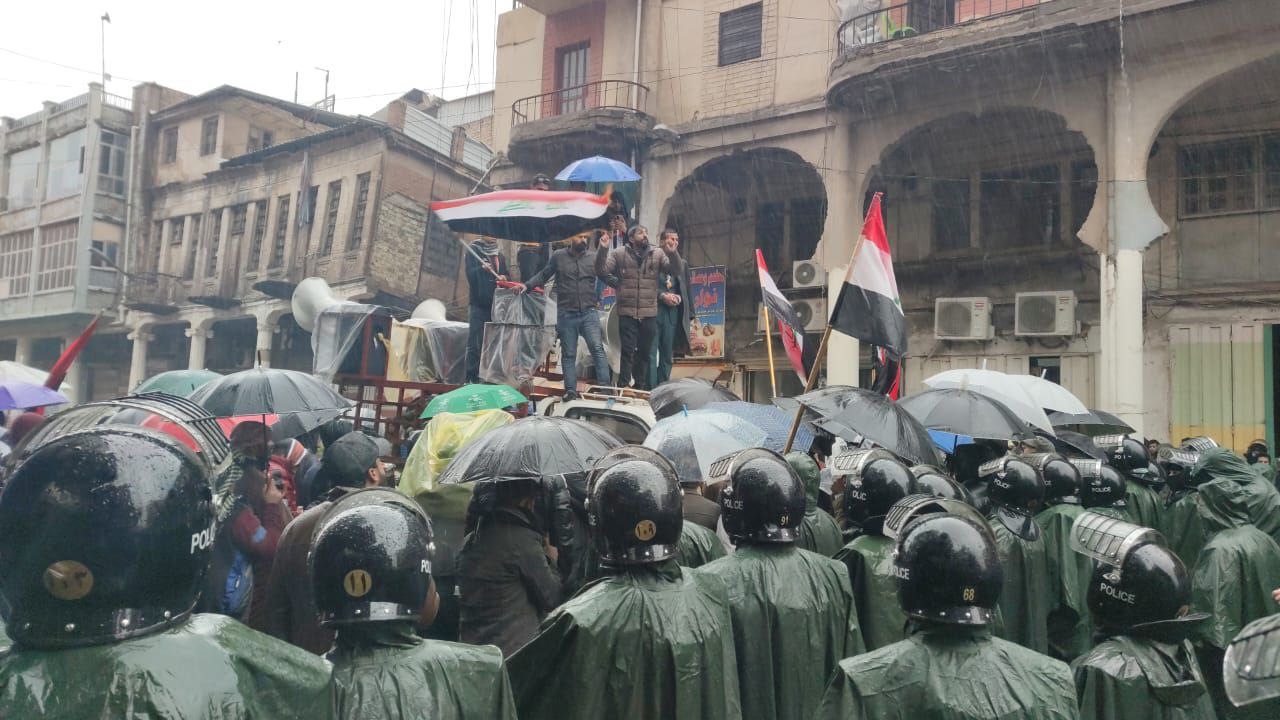
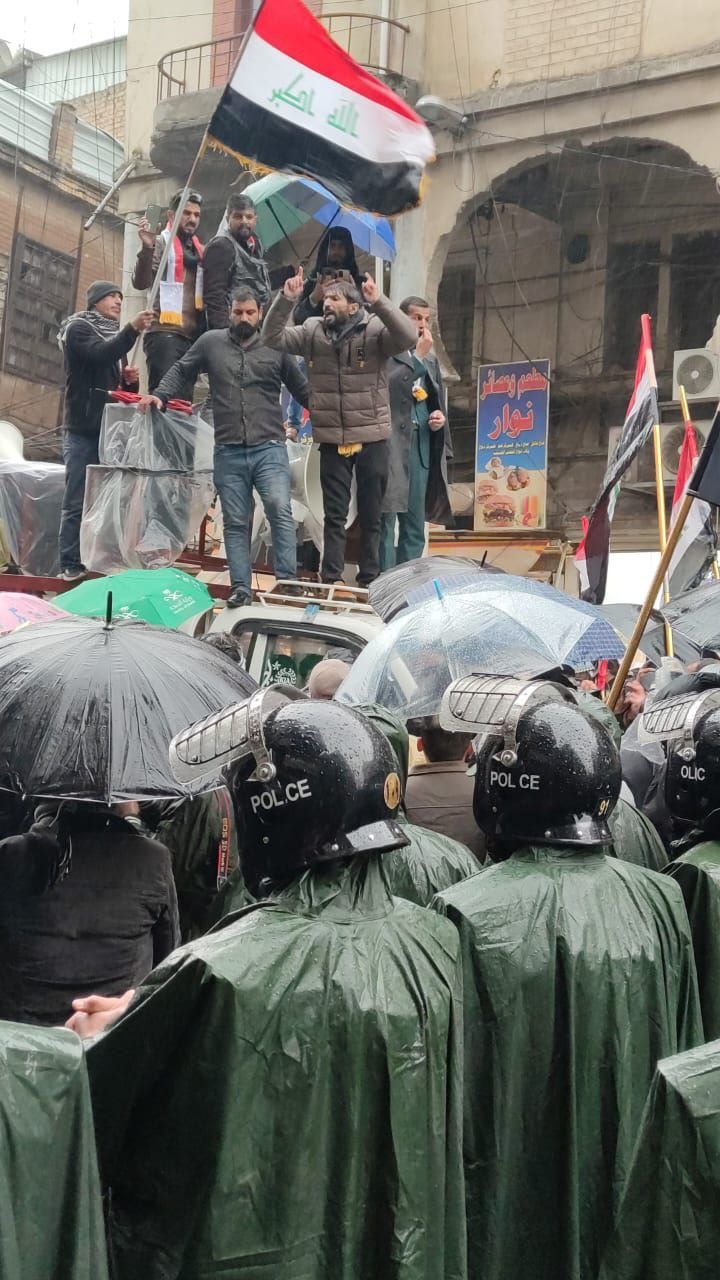
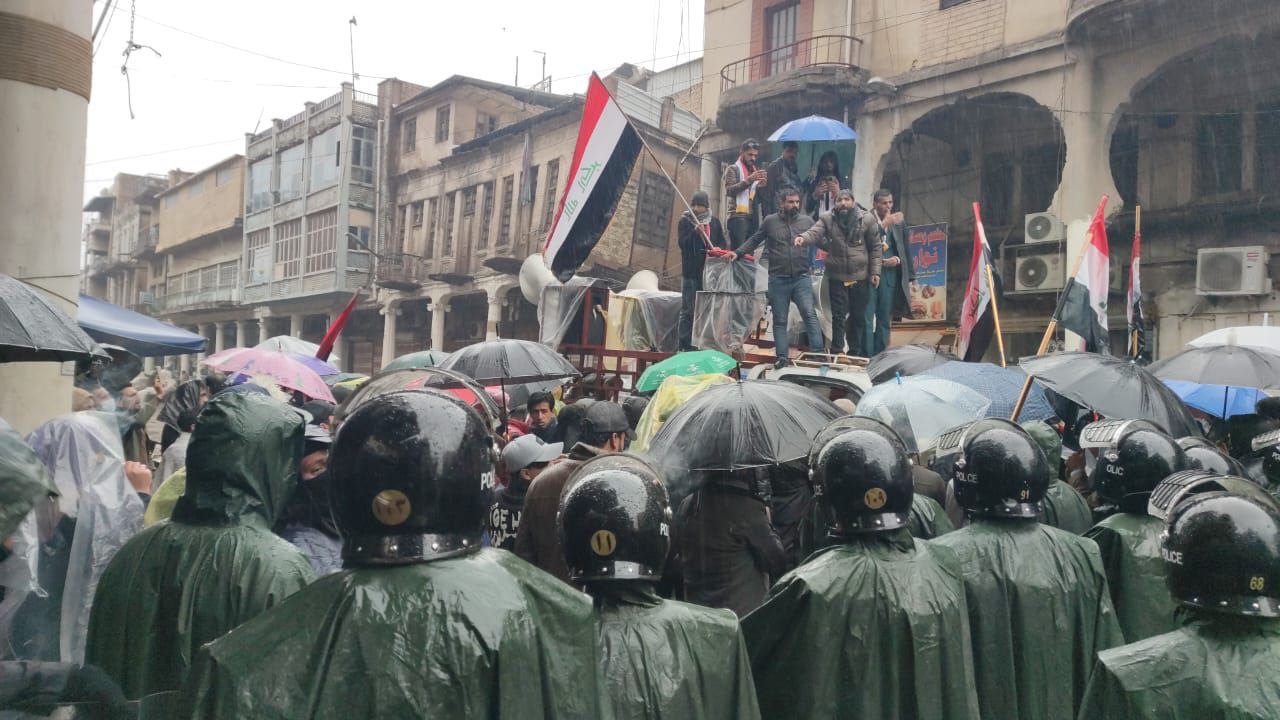
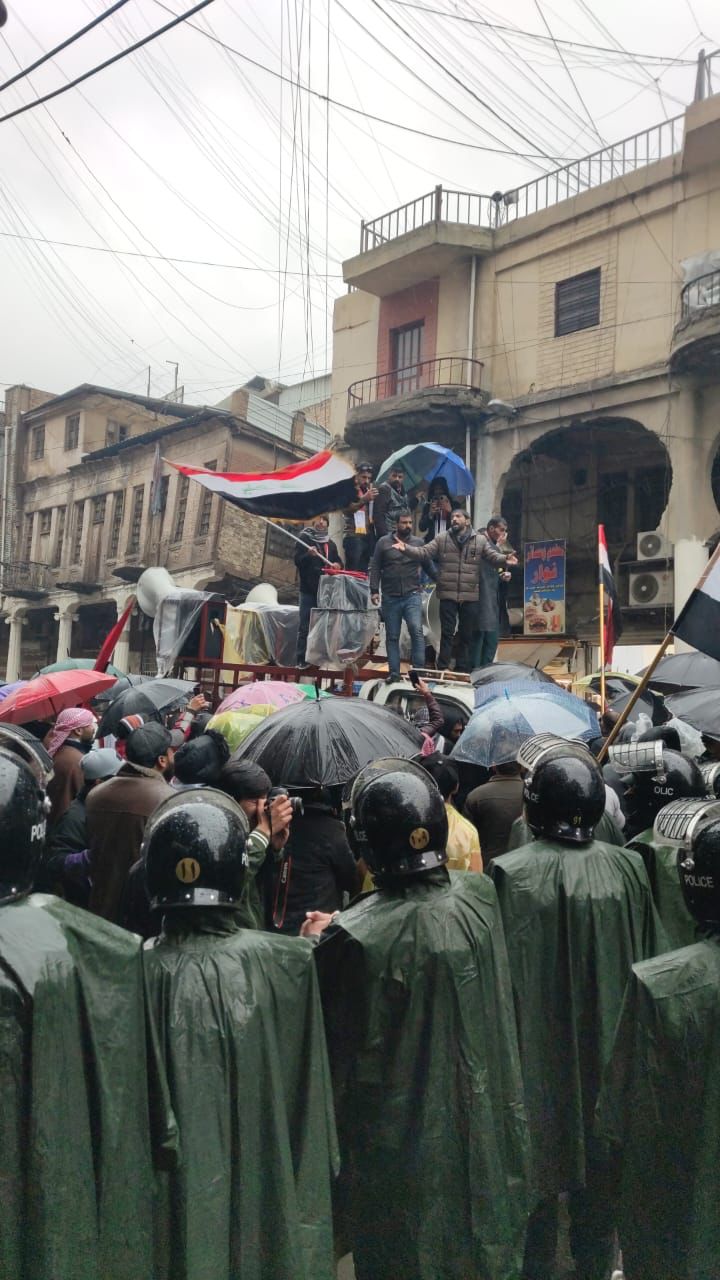
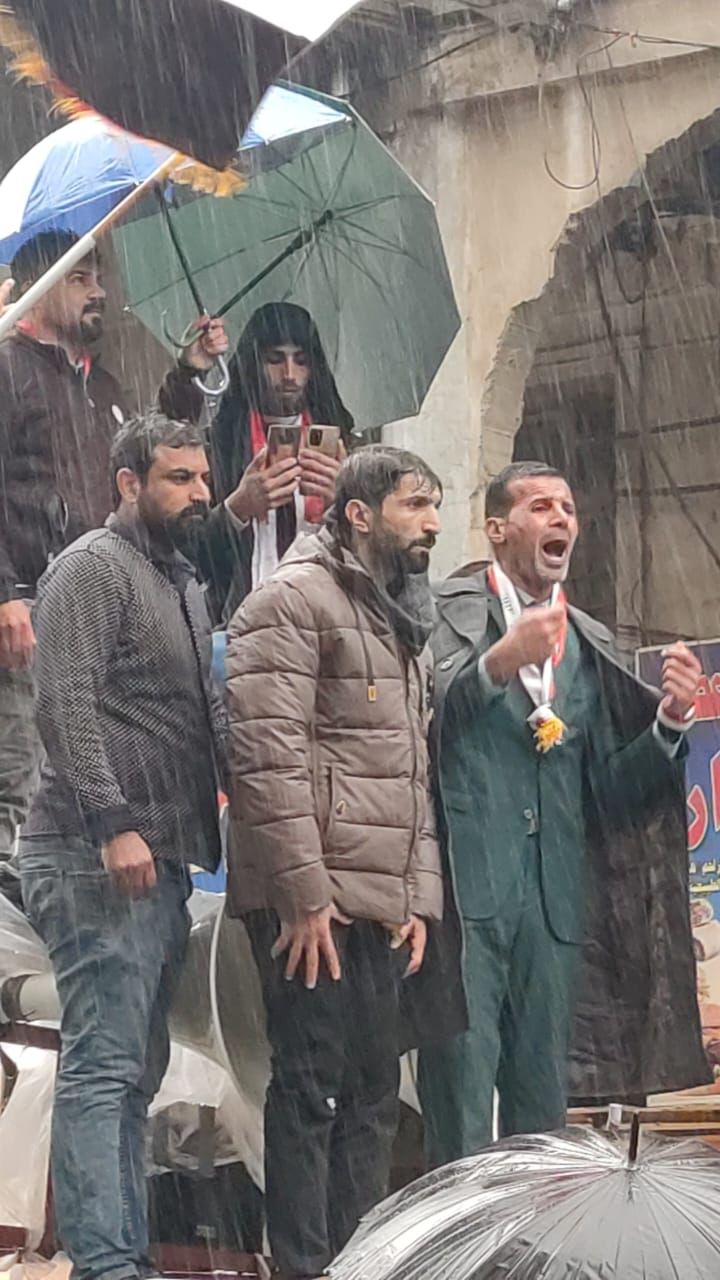
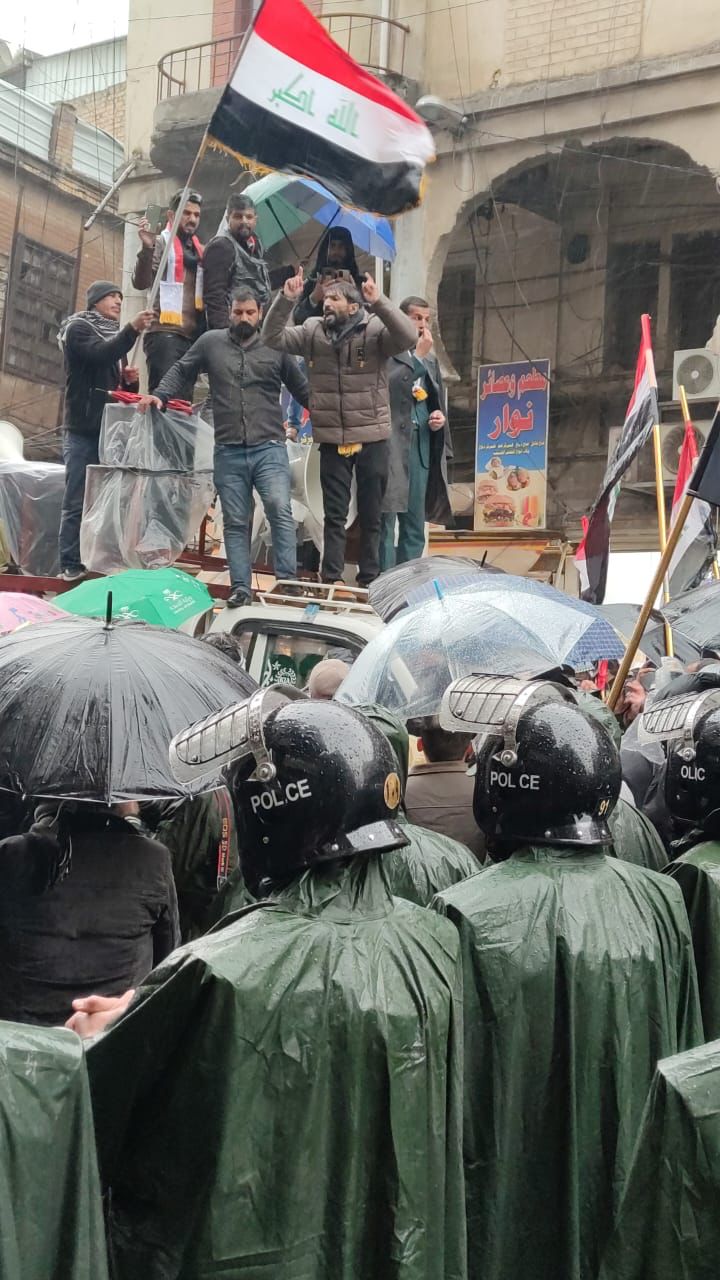
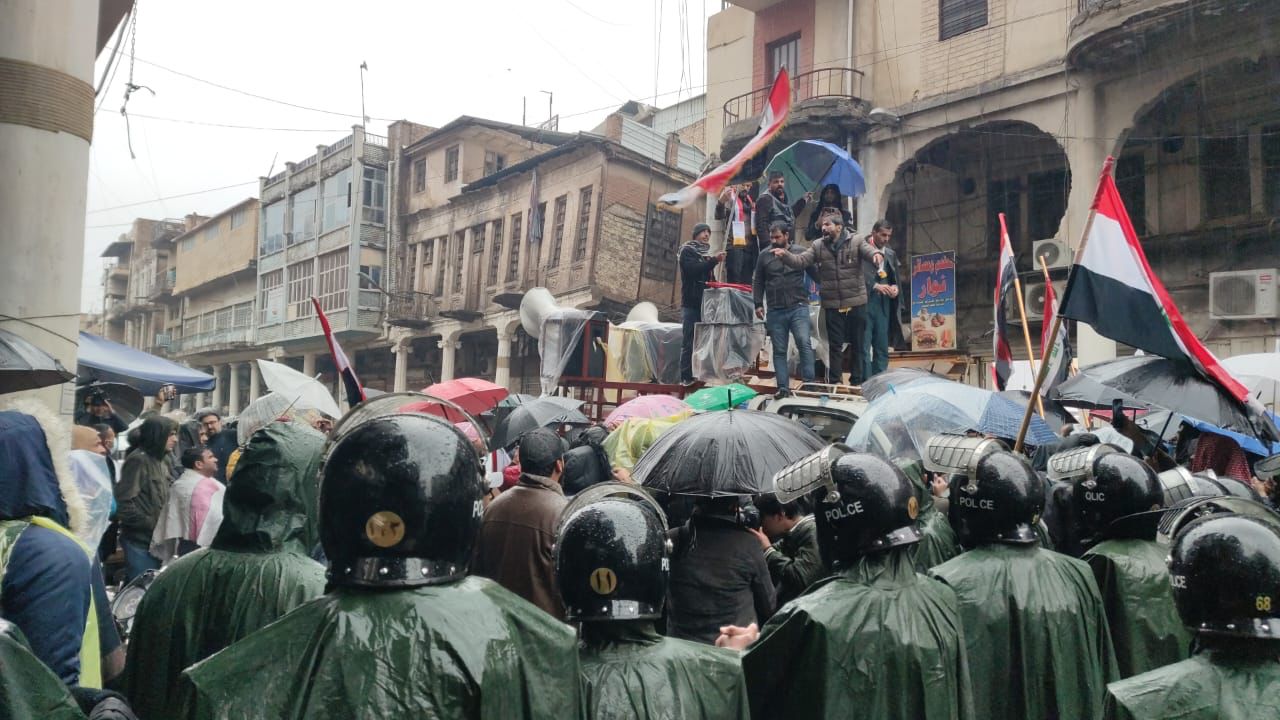
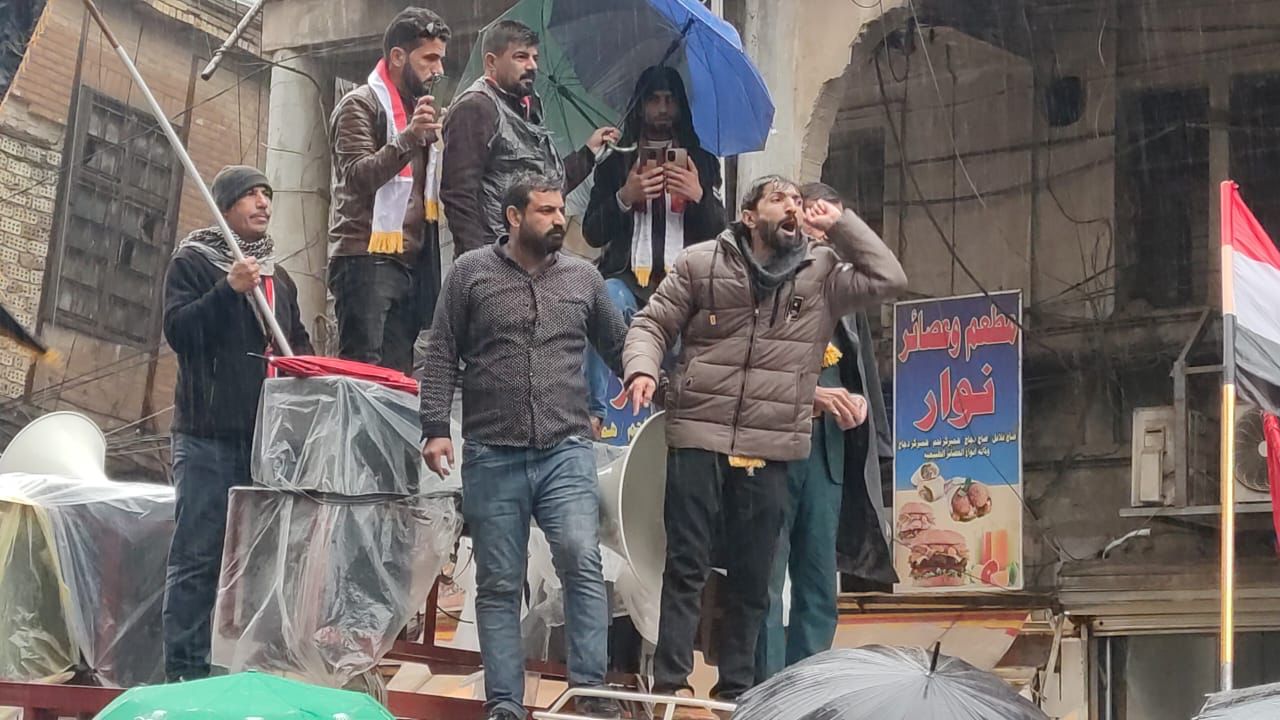

No comments:
Post a Comment